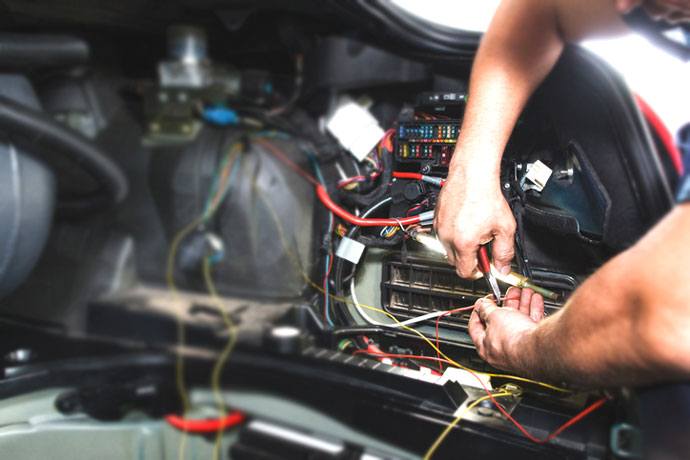
Electric car technology is evolving quickly, but don’t expect the internal combustion engine to go down without a fight.
By the 1950s most cars had ditched 6-volt batteries in favour of the 12-volt variety. The larger capacity was better suited to cold starts and the increasing number of powered gizmos being used to tempt drivers.
Almost 70 years later at it seems batteries are about to once again double in power. This time around, the reasons for the upgrade include stricter fuel economy regulations, internet connectivity and autonomous-driving functions – all of which will put a strain on the venerable 12-volt car electrical system.

When a modern diesel is converted to run off a 48-volt battery, it makes possible the addition of a belt-alternator stop-start system – the high compression of diesel engines makes it hard to use a 12-volt system to power a stop-start system that is smooth and fast.
Furthermore, the larger battery makes it possible to fit an electric turbocharger. The electric turbocharger eliminates low-end diesel turbo lag and boost power at low rpms. These upgrades can boost a car’s fuel economy by an average of 10 per cent.
However, increasing developing the car’s electric systems is about more than simply powering things like lights, radios, windows and central locking. Autonomous driving functions and connectivity require masses of computing power. A car today may process data at 65 megabits, but we are within sight of rates twenty-fold faster – the equivalent of 100,000 pieces of data every time your eyes blink.
An ethical company like no other
The ETA has been voted to be an ethical company in Britain for the second year running by the Good Shopping Guide.
Beating household-name insurance companies such as John Lewis and the Co-op, the ETA earned an ethical company index score of 89.
The ETA was established in 1990 as an ethical provider of green, reliable travel services. Twenty seven years on, we continue to offer cycle insurance, travel insurance and breakdown cover while putting concern for the environment at the heart of all we do.
Alastair Wilson
Most computer systems run on 12v. How does making the rest of the car 48v make any difference? Please to see you reporting on the benefit to diesel engines rather than slagging them off too!
Neil Woolford
Voltage on its own isn’t a measure of battery capacity or “power”. Electrical power is expressed in Watts (or Joules) and is the product of voltage and current. For a given power, the current drawn varies inversely with the supply voltage.
The main practical problem with six volt systems was that unless the vehicle wiring was of expensive heavy gauge cable and all the connectors and switches of superb quality, resistive losses in the system would drastically reduce the efficiency.
Doubling the voltage to twelve volts greatly reduced these losses, though on larger commercial vehicles twenty-four is common, with even greater benefits given the longer wiring runs on large vehicles.
So the physics behind using higher voltages are encouraging, but beyond forty-eight volts the risk of electric shock begins to become serious.